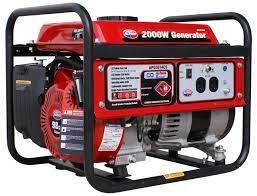
Harnessing Your Solar System as a Backup Power Source: A Sustainable Alternative to Generators
In an era where environmental consciousness is becoming increasingly vital, the shift towards renewable energy sources like solar power has gained significant momentum. Apart from reducing carbon footprints, solar energy offers a sustainable solution to power generation. One of the most underutilized aspects of solar systems is their potential as backup power sources akin to traditional generators. With careful planning and setup, homeowners can leverage their solar installations to provide reliable backup power during grid outages or emergencies. Here's how to maximize your solar system's potential as a backup power system, akin to a generator:
1. Assess Your Energy Needs: Understanding your household's energy requirements during an outage is crucial. Identify essential appliances and devices that you need to power during emergencies. This assessment will help determine the size and capacity of the backup system required.
2. Install Battery Storage: While solar panels generate electricity during the day, excess energy can be stored in batteries for use when sunlight is unavailable. Investing in a battery storage system, such as lithium-ion batteries, enables you to store surplus solar energy and use it during power outages. Ensure the battery capacity aligns with your backup energy needs.
3. Integrate a Backup Inverter: A backup inverter is essential for converting the direct current (DC) electricity stored in batteries into alternating current (AC) electricity that powers your home's appliances. This device ensures a seamless transition from grid power to backup power when an outage occurs.
4. Implement Automatic Transfer Switches (ATS): An ATS automatically switches your home's electrical load from the grid to the backup power source, such as your solar system with battery storage, during an outage. This seamless transition ensures uninterrupted power supply to critical appliances without manual intervention.
5. Regular Maintenance and Monitoring: Like any electrical system, regular maintenance is essential to ensure optimal performance. Monitor the condition of your solar panels, batteries, and inverters periodically to detect any issues early. Clean solar panels regularly to maximize their efficiency, and schedule professional inspections as needed.
6. Emergency Preparedness: Create an emergency preparedness plan that includes instructions for using your solar backup system effectively during power outages. Educate family members on how to operate the backup system safely and efficiently.
7. Consider Scalability: As your energy needs may change over time, consider the scalability of your backup power system. Ensure that your solar system and battery storage capacity can be expanded if necessary to accommodate future requirements.
8. Explore Financing Options: Installing a backup power system based on solar energy may require upfront investment. However, various financing options, including solar loans and leasing arrangements, can make it more affordable. Explore available incentives, tax credits, and rebates to offset initial costs.
9. Backup Power Usage Optimization: During extended outages, prioritize energy usage to conserve battery power for essential appliances. Minimize non-essential energy consumption and consider alternative power-saving measures to prolong backup power availability.
10. Stay Informed: Keep abreast of advancements in solar technology and backup power systems. Upgrading to more efficient equipment or incorporating new features can enhance the reliability and performance of your backup power system.
By utilizing your solar system as a backup power source, you not only ensure energy resilience during emergencies but also contribute to a cleaner and more sustainable energy future. With the right setup and maintenance, harnessing solar energy for backup power can provide peace of mind while reducing reliance on fossil fuels. Embrace the power of the sun and transform your home into a beacon of sustainability and resilience.
What do you think? Leave a comment.